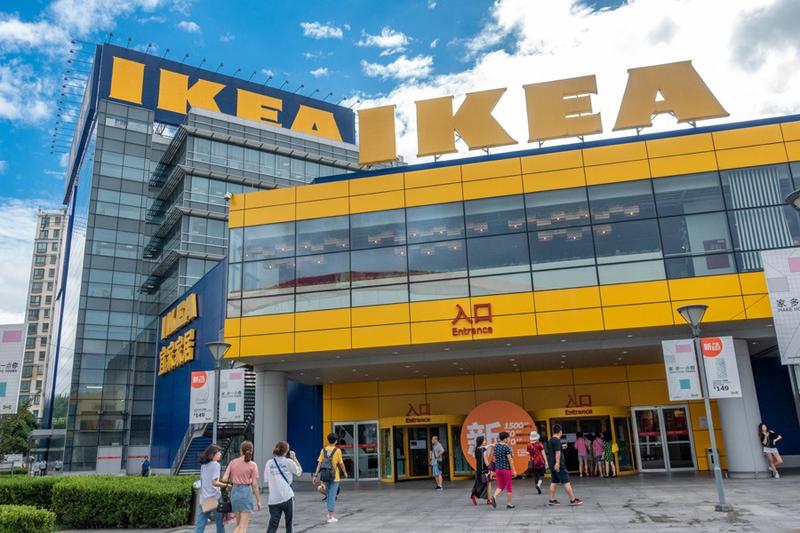 Pedestrians walk past an Ikea center in Shanghai. (PHOTO PROVIDED TO CHINA DAILY)
Pedestrians walk past an Ikea center in Shanghai. (PHOTO PROVIDED TO CHINA DAILY)
Ikea, a world's leading home furnishings retailer, opened its first Ikea City in central Shanghai on Thursday to get closer to Chinese consumers, especially the younger generation, to enhance its omni-channel retailing experience through store designs, digital innovations and catering elements.
Ikea opened its online flagship store on Alibaba's e-commerce platform Tmall in March, providing about 3,800 Ikea products
The move implements Ikea China's transformation strategy that is centered on digitalization and localization it has adopted since last August.
Ikea City, which stands in the Jing'an district of Shanghai, has a usable floor area of 3,000 square meters. The three-floor mall has 3,500 items on display, of which about 1,200 items are available to take home right away. Consumers can have access to a total of 9,500 items by clicking on its online platforms and get their orders home delivered.
ALSO READ: Ikea opens online flagship store on Tmall
Ikea City Market Manager Zhu Yuan said the store offers a retailing experience with more convenience, flexibility and diversity to consumers by blending with Shanghai's urban characteristics along with omnichannel services.
"The store shows Ikea's efforts to better meet the needs of consumers and keep pace with the upgraded sales pattern in China by adding more retail pathways both online and offline," said Francois Brenti, vice-president of Ikea China.
As a retailer which once mostly operated brick-and-mortar malls, Ikea China carried out its transformation strategy with the aim of boosting convenience and accessibility for consumers. It developed smaller-sized stores in downtown areas to accelerate its omni-channel retailing, Brenti said.
"Ikea has been in China for 22 years and is going to be here for longer," said Brenti. "China is one of the most important markets for Ikea. We are willing to launch new formats to correspond to the needs of consumers who shop at different time and occasions."
Brenti said the COVID-19 pandemic has affected their brick-and-mortar stores in China, but their online businesses have seen significant growth.
"We are on a faster track than we expected. It has not put any question mark to our business so far," he said. "Through this pandemic, we understand consumers in China want more conveniences."
Ikea's omni-channels composed of brick-and-mortar stores, mini-WeChat program, applications and websites, and the online store at Tmall are complementary to each other and able to take fast action according to consumer demand, Brenti said.
Jason Yu, general manager of Kantar Worldpanel China, said the move is a radical transformation of Ikea. The retailer has been known for locating majority of its stores in suburban areas in order to display its merchandise in as many places as possible.
Large stores located out of the center of town would mean limited shopping frequencies unless it is a destination shopping for consumers, said Yu.
He said it is essential for furniture retailers to offer a brick-and-mortar shopping experience which will enable consumers to see how products can be used in real life situations. They can then choose to order from the online store or from inventory in stores so they can enjoy the convenience of home delivery.
READ MORE: Ikea planning to attract more young buyers throughout China
Ikea opened its online flagship store on Alibaba's e-commerce platform Tmall in March, providing about 3,800 Ikea products. The number is about 40 percent of all products that Ikea provides in a physical store.
The Ingka Group, which owns most Ikea furniture stores worldwide, now has 30 Ikea retail outlets, one Ikea City, two experience shops and three Livat shopping centers in China.


